Fenugreek Benefits: 14 Proven Health Advantages In 2025
Get ready to boost your health by including these seeds in your regular diet!
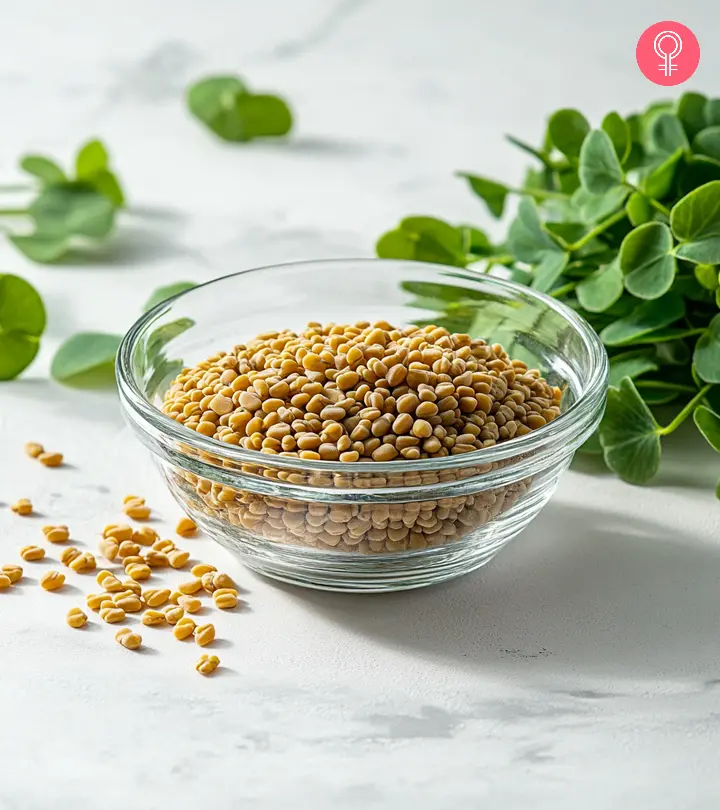
Image: Midjourney/ StyleCraze Design Team
Fenugreek seeds are one of the common ingredients in many traditional cuisines. The benefits of fenugreek are widely studied. This herb has many positive effects on overall health if included in the diet regularly.
Fenugreek is one of the oldest remedial plants, native to Central and Southeast Asia, especially India. However, it is also cultivated in North Africa, Mediterranean regions, and the US.
 Trivia
TriviaKeep reading to know how fenugreek seeds benefit you in various ways.
 Know Your Ingredient: Fenugreek
Know Your Ingredient: FenugreekWhat Is It?
An aromatic herb that is used as a spice and flavoring agent.
What Are Its Benefits?
Fenugreek may help in diabetes management, reduce cholesterol levels, support weight loss, and may help manage dandruff and acne.
Who Can Use It?
Topical fenugreek is suitable for all skin and hair types. People with diabetes and high cholesterol levels may consume it as recommended by the doctor.
How Often?
Topical fenugreek can be used twice a week. Oral fenugreek can be used daily or as directed by the doctor.
Caution
Excessive consumption of fenugreek may lead to diarrhea, allergic reactions, or a sudden drop in blood glucose levels.
In This Article
What Is Fenugreek? How Does It Work?
Fenugreek is an annual herb that belongs to the Fabaceae family, the same family as soy.
The fresh and dried seeds of this plant have been used as a spice and flavoring agent for ages. India accounts for its major production throughout the world, with 80% output coming directly from Rajasthan.
Fenugreek benefits for females and males include an increase in hormone levels, stabilization of blood sugar levels, and stimulation of the production of insulin. Hence, it is very effective for people dealing with diabetes (1). It may also help with respiratory problems, such as mild asthma (2).
This is just one of the ways fenugreek can benefit you. There are more fenugreek benefits that we will discuss in the next section.
Key Takeaways
- Fenugreek seeds may help stabilize blood sugar levels.
- Their nutrients boost hair growth, moisturize the scalp, and reduce dandruff.
- Regular consumption may improve PCOS, cholesterol levels, digestive issues, and inflammation.
- Consult a doctor to get a recommended dosage of fenugreek seeds depending on your health issues.
What Are The Health Benefits Of Fenugreek?
1. Fenugreek Boosts Testosterone
Fenugreek can boost testosterone levels.
The hormone plays a vital role in many bodily functions in males.
A study conducted on 100 male participants between the ages of 35 to 65 years showed an increase in serum testosterone levels and the sperm count. The participants were made to add a fenugreek supplement to their diets for 12 weeks to tackle testosterone deficiency (3).
2. Is Beneficial During Breastfeeding

A study was conducted on 122 participants to review the systematic galactagoguei Foods believed to have the potential to boost breast milk production, such as fennel, oats, green papaya, and leafy green vegetables. effect of fenugreek. The study compared the result of fenugreek with another galactagogue and a placeboi A substance that has no real therapeutic value but encourages the brain to trick the body into thinking it does. . It was found that ingesting fenugreek could increase breast milk production in lactating women (4).
3. Promotes Hair Growth
Fenugreek seeds are packed with many nutrients that stimulate hair growth.
Even its leaves help in this regard. Research suggests applying the paste made from the leaves to the scalp promotes hair growth and preserves the natural hair color (5).
A study conducted on men and women between 30 and 67 years of age showed a positive effect on their hair health. About 83% of the volunteers reported an improvement in hair volume and hair thickness – post treatment with fenugreek (6).
4. Can Aid Weight Loss

Early research shows that 500 mg of fenugreek supplement can decrease body fat. Another study conducted on four groups of mice showed a significant decrease in body weight following ingestion of fenugreek over 22 days (7). Nilofar Pendhari, a certified clinical nutritionist, says, “Fenugreek is a well-known weight loss agent as it increases your metabolic rate. It aids weight loss by suppressing appetite, increasing satiety, and decreasing dietary calorie intake. It, in fact, helps burn belly fat.”
Fenugreek also contains fiber that promotes a feeling of fullness and keeps people from overeating. In a study, participants who drank fenugreek tea felt less hungry compared to the other group that didn’t (8).
5. Aids Diabetes Treatment
The fiber in fenugreek forms a thick and sticky gel in the intestine, which makes it harder to digest excess sugars and bad fats.
A study was conducted on two groups of people with type 2 diabetes. The group that consumed fenugreek powder twice a day saw a significant improvement in their diabetes symptoms (9).
6. Can Treat Dandruff

Fenugreek can also be used as a conditioner, thanks to its high mucilage content. Many people believe that fenugreek seeds are effective in reducing dandruff. The plant has also been used since ancient times to treat a flaky, irritated scalp. The powder of the seeds can also be blended with a hair mask or a conditioner to accentuate its benefits and naturally soften hair.
Fenugreek also makes for a relatively inexpensive treatment for dandruff. The seeds and the leaves can be used for this purpose, both externally and internally, as they have antibacterial and antifungal properties (10).
7. May Treat Acne

Fenugreek works within the digestive system to eliminate all the toxins from the body. The leaves of fenugreek can work wonders for acne. Research shows that applying the paste of the leaves to acne can prevent fresh outbreaks (11). You can apply the paste in the night and wash it off the following morning with warm water.
Fenugreek also contains salicylic acidi A natural plant compound that sheds dead skin cells and is used to treat skin disorders caused by inflammation. that unclogs pores (12).
8. Improves Skin Health
Fenugreek is a wonderful and harmless alternative to all the contemporary creams that usually contain petroleum products and other chemicals.
Fenugreek has natural oils that help in hydrating, moisturizing, and softening skin. The potassium, carotenei A pigment in plants responsible for the colors orange, yellow, and red that are essential compounds for photosynthesis. , and vitamin C in the seeds boost skin elasticity and overall health (13).
9. Helps Relieve Symptoms Of PCOS
Among some of the benefits of fenugreek for women is its ability to relieve symptoms of PCOS. In a study, women with hyperandrogenismi A medical condition in which women produce excess male sex hormones with adverse effects on the body. , menstrual disturbances, and infertility were given fenugreek capsules. The participants saw a major improvement in their symptoms within two months. Anecdotal evidence also suggests that it helps relieve menstrual cramps.
The participants had also reported no side effects from the fenugreek capsules. Their ovaries reverted to normal health, and their period cycles were restored (14).
10. Can Relieve Constipation

Fenugreek improves digestion and prevents stomach disorders. The seeds are rich in mucilage and help prevent constipation by softening the mucus membranes and improving their composition. The seeds also resist excess mucus production at the same time.
Fenugreek is a bulk-forming laxative, thanks to its high fiber and mucilage content. The seeds expand after coming in contact with water. This triggers a reflex muscular contraction as the volume increases, thereby stimulating bowel movement (15).
11. Treats Heartburn
In a study, fenugreek products were found to reduce the severity of heartburn. Fenugreek had worked similar to an OTC antacidi A medicine that has the potential to neutralize acids in the stomach and provide relief from heartburn and indigestion. medication (16).
Fenugreek also soothes gastrointestinal inflammation by forming a shield over the intestinal lining.
12. Lowers Cholesterol
Fenugreek seeds lower total cholesterol and LDL (the bad cholesterol), which can promote heart health. They are rich sources of steroidal saponins that intercept the absorption of cholesterol and triglyceridesi A type of converted fat stored in the fat cells in case of excess calories that are not immediately required by the body. (17). This way, the seeds discourage the production of cholesterol in the liver.
One human double-blind trial demonstrated that fenugreek, in addition to lowering total cholesterol levels, also stimulated the production of good cholesterol (18).
13. Fight Inflammation
The linolenici An essential plant acid found in high concentration in plant oils that reduces inflammation and prevents many chronic diseases. and linoleic acids in fenugreek seeds offer protection from inflammation. In addition, the ethanol, mucilagei A thick, gluey substance produced by some microorganisms and plant roots used in medicines and adhesives. , and flavonoidsi A group of natural substances that exhibit antioxidant properties and are found in fruits and vegetables, such as citrus fruits and soybeans. extracted from fenugreek seeds also contribute to their anti-inflammatory properties (19). The anti-inflammatory properties of fenugreek have also been traditionally associated with the treatment of knee pain or arthritis.
14. Reduce Aluminum Toxicity
Aluminum toxicity leads to brain, skin, and skin problems. In a study, whole fenugreek seed powder showed protective properties that aided brain, bone, and kidney functioning (20). Another study showed that fenugreek could also reduce the chances of memory loss and may boost the immune system. So, fenugreek powder can be used as a detoxifying supplement that helps reduce the harmful effects of aluminum toxicity (21).
Annie Windholz, a blogger, had a unique experience with using fenugreek as a natural deodorant. It acted as an alternative to conventional deodorants, eliminating body odor. She said, “I have started taking a teaspoon of fenugreek every morning with my coffee, and my life has changed. Within a day I was smelling like maple syrup, with all other previous body odor smells gone… I could smell amazing and sweat freely and enjoy health benefits from smelling great (i).”
These are the many ways fenugreek seeds can improve your health. But how do you consume them? Is there a specific method to follow?
How To Consume Fenugreek Seeds
To get the maximum benefit, first, soak fenugreek seeds in water overnight. You can then ground them or use them as they are.
Alternatively, you can also buy the vacuum-packed paste in departmental stores.
The seeds can be eaten on an empty stomach. You can also infuse the powder in water, use it as a seasoning, a supplement, or even apply to the affected area.
We have already seen what fenugreek is good for. We have looked at a few of the power nutrients in these seeds. In the next section, we will look at the other nutrients that make fenugreek a power food.
What Is The Nutritional Profile Of Fenugreek?
| Name | Amount and Unit (per 100 gms) |
|---|---|
| Water | 8.84 g |
| Protein | 23 g |
| Carbs | 58.4 g |
| Dietary Fiber | 24.6 g |
| Calcium | 176 mg |
| Iron | 33 mg |
| Magnesium | 191 mg |
| Potassium | 770 mg |
| Phosphorus | 296 mg |
| Vitamin C | 3 mg |
| Thiamin | 0.322 mg |
| Riboflavin | 0.366 mg |
| Niacin | 1.6 mg |
| Folate | 55 µg |
| Vitamin A | 3 µg |
| Saturated Fatty Acids | 1.46 g |
Values sources from USDA, spices, fenugreek seed (21)
That’s a lot of nutrition in such tiny seeds, isn’t it? But can you consume as much fenugreek as you want in a day? Probably not. There is a specific dosage for specific individuals.
How Much Fenugreek Can You Take In A Day?
Different dosages are used in clinical studies and treatments. These depend on the needs of the patient.
- People with high cholesterol can take 10 to 30 grams of the seeds/powder three times a day, with meals.
- Lactating mothers who wish to increase their milk production should aim for 500 to 1000 mg of fenugreek a day.
- People with type 2 diabetes should consider taking 2.5 to 15 grams of the seeds daily.
- Men who want to increase their testosterone levels can opt for 500 to 600 mg of fenugreek daily.
 Quick Tip
Quick TipWhile consuming fenugreek in the right amounts can offer numerous benefits, its external use for hair care comes with certain limitations to consider. Scroll down to learn about the limitations and practical tips for using fenugreek in hair care.
Limitations Of Using Fenugreek Seeds For Hair Care
- Some people may find the pungent, lasting smell of fenugreek unpleasant.
- Fenugreek hair mask preparation can be complex because it requires soaking, grinding, and application.
- Some people, particularly those with sensitive skin, develop allergic reactions, itching, or redness. Hence, a patch test is non-negotiable.
- When applied in excessive amounts, fenugreek paste can become sticky and challenging to remove.
- Although fenugreek aids in hydration, excessive use may occasionally cause dryness or accumulation on the scalp.
- While beneficial for many, some hair types, especially fine or oily, may find it too heavy or difficult to manage.
While fenugreek has some limitations in hair care, there are practical ways to maximize its benefits and minimize potential drawbacks.
Practical Tips For Using Fenugreek Seeds In Hair Care
- Always soak fenugreek seeds in water before using them for the entire night to soften them and release their nutrients.
- Mix with coconut oil, yogurt, or aloe vera to increase benefits and lessen dryness.
- Since fenugreek paste can be sticky, correctly wash your hair with lukewarm water and a gentle shampoo.
- Moderation is essential, as excessive use may result in accumulation or dryness.
- Blend soaked seeds into a smooth paste to avoid residue in your hair.
For other diseases, conditions, and symptoms – please refer to the dosages prescribed by your doctor. Always make sure to consult an expert so that you don’t go overboard on supplements.
Infographic: Amazing Health Benefits Of Fenugreek Seeds
Fenugreek seeds have a long history in alternative or herbal medicine for their therapeutic uses. In addition, the flavonoid content of fenugreek offers many benefits. But before you start including them in your daily diet, there are a few essential amazing benefits of fenugreek. Click on the infographic below to learn about the top health benefits of fenugreek seeds.
Some thing wrong with infographic shortcode. please verify shortcode syntaxFenugreek has been used as a flavoring agent and spice for centuries. Intake of fenugreek seeds benefits your health in many ways. They help improve testosterone levels, increase breast milk production in lactating mothers, aid weight loss, improve diabetes symptoms, promote hair growth, and boost skin health. You can add them easily to your diet, and their dosage depends on the needs of the individual. However, do not take them in excess, and always consult your doctor regarding their dosage.
Frequently Asked Questions
Does fenugreek clean you out?
Pendhari says, “Fenugreek water helps flush out harmful toxins from your body and improves your bowel movement. As fenugreek is rich in fiber and antioxidants, it helps in flushing out harmful toxins and aids digestion.”
Is fenugreek safe to take every day?
Taking fenugreek seeds daily can improve your health and maintain a non-toxic eco-system in the body. Hence, you can take it every day.
Can you take fenugreek on an empty stomach?
A moderate amount of fenugreek can be taken on an empty stomach. The best way to consume the seeds/powder is in warm water.
How long does fenugreek take to start working?
Depending on the severity of the condition, the time taken can be as short as 24 to 72 hours or as long as 3 to 9 months or even a year.
What happens if you take too much fenugreek?
As fenugreek is hot, it can cause skin dryness if consumed in excess. Some people have also reported diarrhea, headaches, bloating, gas, and maple syrup odor in the urine.
If fenugreek is not taken as per the recommended dosage, one may also experience nasal congestion, coughing, wheezing, facial swelling, and severe allergic reactions (especially in hypertensive people).
Does fenugreek interact with medications?
If you are on medications, we suggest you consult your doctor before taking fenugreek. Fenugreek can lower the blood sugar levels, and hence, people with diabetes should monitor their blood sugar to ensure their levels are not reduced way too low.
Fenugreek is also known to interact with thyroid medicines and may aggravate symptoms of hypothyroidism.
What does fenugreek do for female hormones?
Animal studies have found that fenugreek seeds may increase estrogen levels and overexpression of progesterone receptors in the reproductive system. This may lead to the development of reproductive cells (23). On the other hand, in men, it causes an increase in testosterone levels and may also help in cancer prevention (24). However, clinical studies need to be done to further understand this link and support this.
Illustration: Wonderful Benefits Of Fenugreek Seeds You Must Know About

Image: Stable Diffusion/StyleCraze Design Team
Discover the incredible power of fenugreek seeds and leaves in this captivating video. Learn about its amazing health benefits and how they help boost your overall health from the video below.
Personal Experience: Source
StyleCraze's articles are interwoven with authentic personal narratives that provide depth and resonance to our content. Below are the sources of the personal accounts referenced in this article.
i. An Ode to Fenugreek: Goodbye Deodorant Stickshttps://anniewindholz.medium.com/an-ode-to-fenugreek-goodbye-deodorant-sticks-144a6b3b3d95
References
Articles on StyleCraze are backed by verified information from peer-reviewed and academic research papers, reputed organizations, research institutions, and medical associations to ensure accuracy and relevance. Read our editorial policy to learn more.
- “The most useful medicinal herbs…” Biomedical Research and Therapy.
- “Investigating the effectiveness of the Trigonella foenum-graecum L. (fenugreek) seeds in mild asthma: a randomized controlled trial” National Center for Biotechnology Information
- “The efficacy study of…” US National Library of Medicine.
- “Effectiveness of fenugreek as a…” Phytotherapy Research, US National Library of Medicine.
- “The health benefits of trigonella…” Rameesh Institute of Voc & Tech Education.
- “Fenugreek+micronutrients…” ResearchGate.
- “Effect of fenugreek on total body…” Pharmacology Online.
- “Fennel and fenugreek…” Clinical Nutrition Research, US National Library of Medicine.
- “Role of fenugreek in the prevention…” Journal of Diabetes & Metabolic Disorders, US National Library of Medicine.
- “Chemical composition and antifungal…” ResearchGate.
- “Wonders of leafy species…” Academia.
- “Salicylates in foods” Journal of the American Dietetic Association, Semantic Scholar.
- “Effect of cream formulation of…” Tropical Journal of Pharmaceutical Research.
- “Evaluation of fenugreek…” Iranian Journal of Pharmaceutical Research, US National Library of Medicine.
- “Fenugreek” University of Michigan.
- “Anti-heartburn effects of a…” Phytotherapy Research, US National Library of Medicine.
- “Steroid saponins from fenugreek seeds…” Steroids, US National Library of Medicine.
- “Role of fenugreek in the prevention of…” Journal of Diabetes & Metabolic Disorders, US National Library of Medicine, National Institutes of Health.
- “Anti-inflammatory activity of…” Indian Journal of Pharmacology, US National Library of Medicine.
- “Fenugreek seeds reduce…” Nutrition Research and Practice, US National Library of Medicine.
- “Fenugreek seeds, a…” BMC Veterinary Research
- “ Spices, Fenugreek Seeds,” USDA FoodData Central
- “Substantial Effect of Fenugreek Seeds” Oman Medical Journal, US National Library of Medicine
- “Health Benefits of Fenugreek” WebMD.
Read full bio of Gaelle Clement
- Nilofar Pendhari is a Certified Clinical Nutritionist with 9 years of experience in dietetics. She specializes in weight loss and management and charts out effective diet plans to help her clients meet their fitness and weight loss goals.
 Nilofar Pendhari is a Certified Clinical Nutritionist with 9 years of experience in dietetics. She specializes in weight loss and management and charts out effective diet plans to help her clients meet their fitness and weight loss goals.
Nilofar Pendhari is a Certified Clinical Nutritionist with 9 years of experience in dietetics. She specializes in weight loss and management and charts out effective diet plans to help her clients meet their fitness and weight loss goals.
Read full bio of Ravi Teja Tadimalla
Read full bio of Arshiya Syeda
Read full bio of Aparna Mallampalli







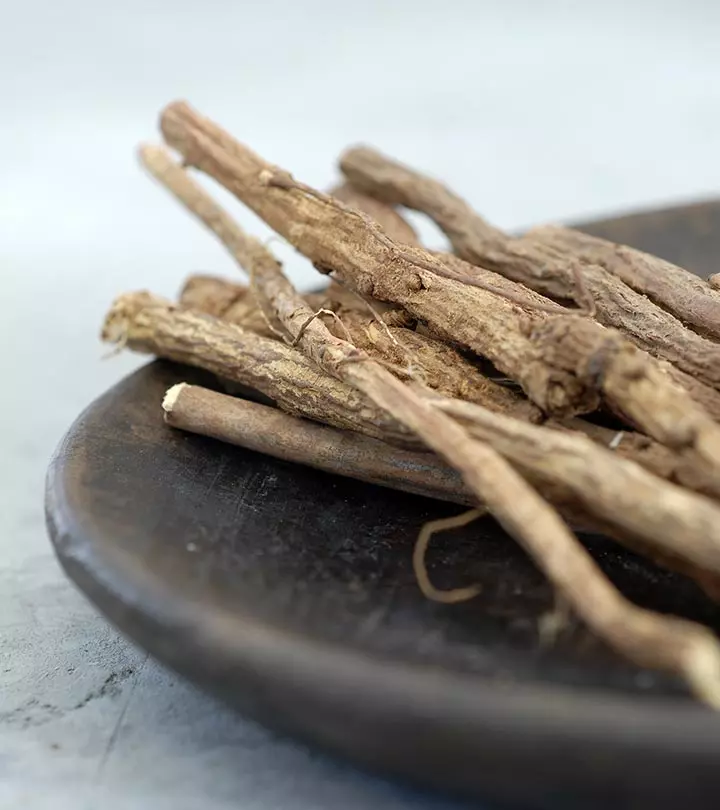
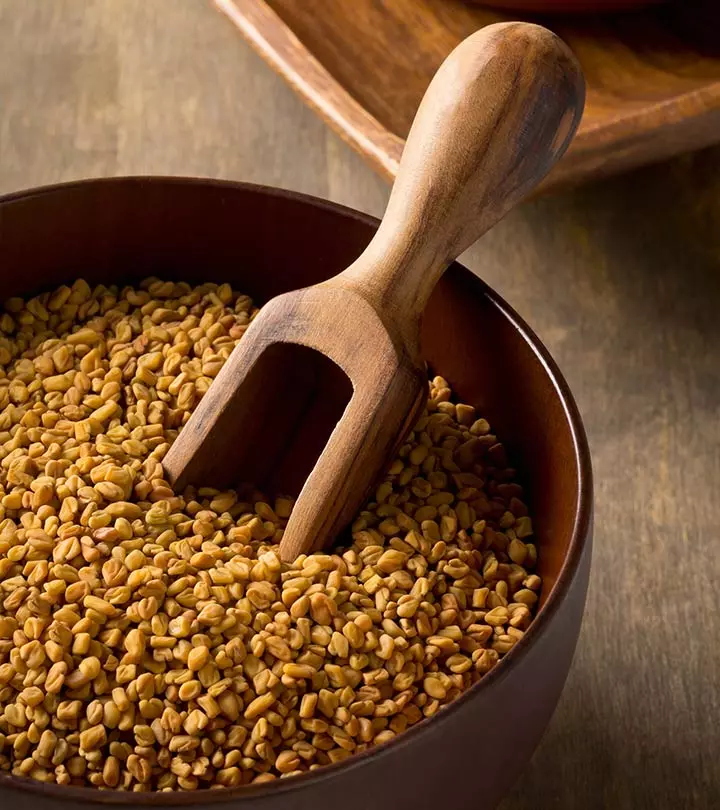
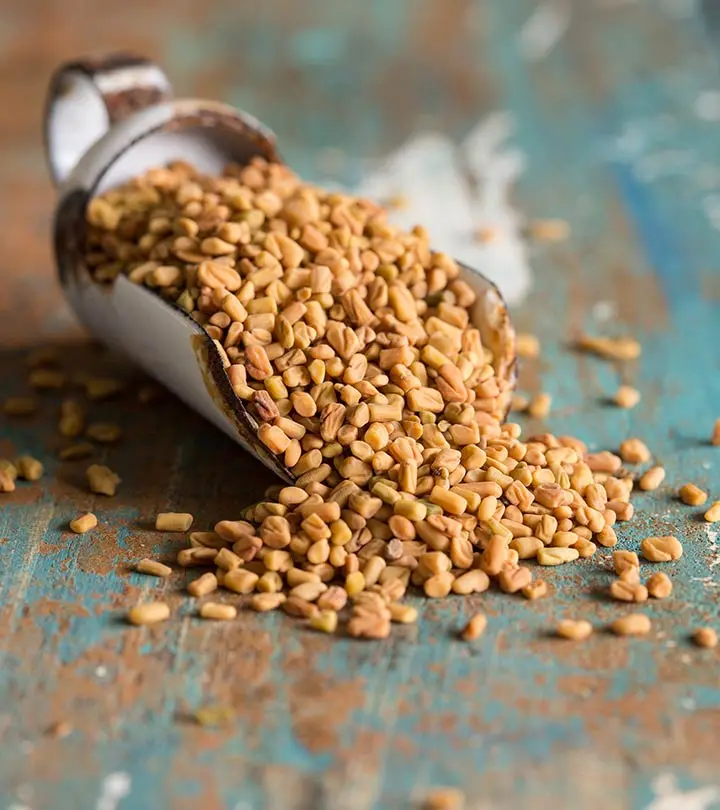

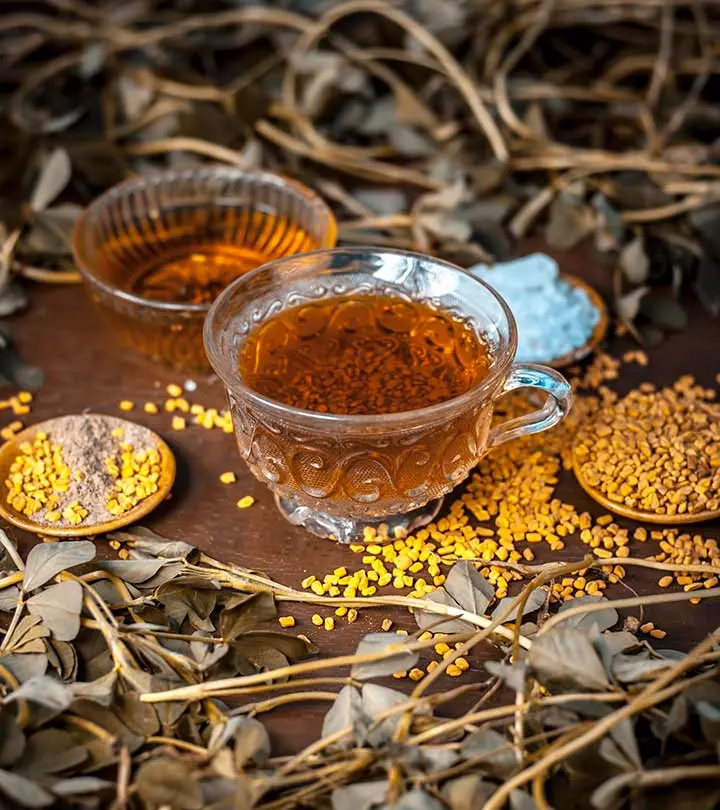
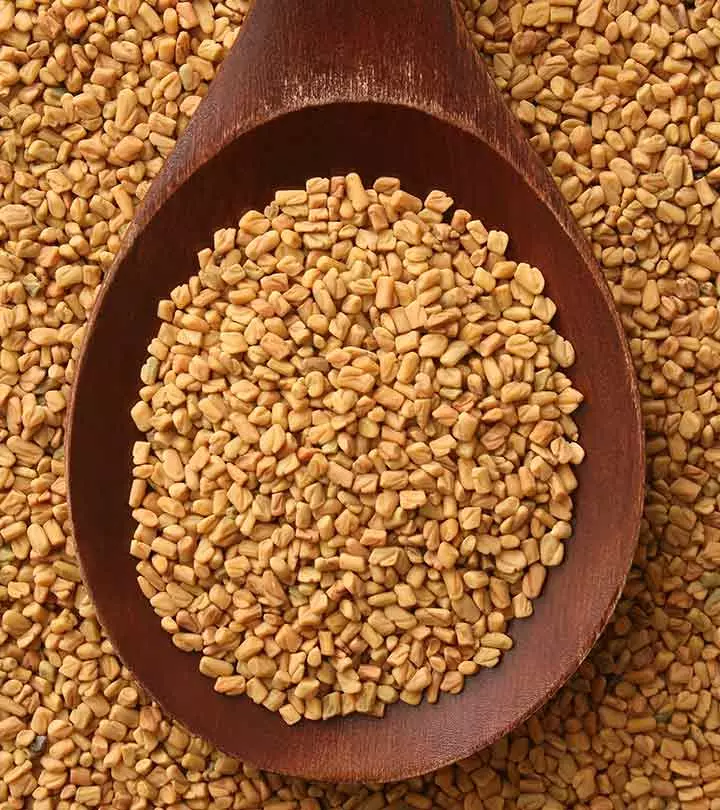

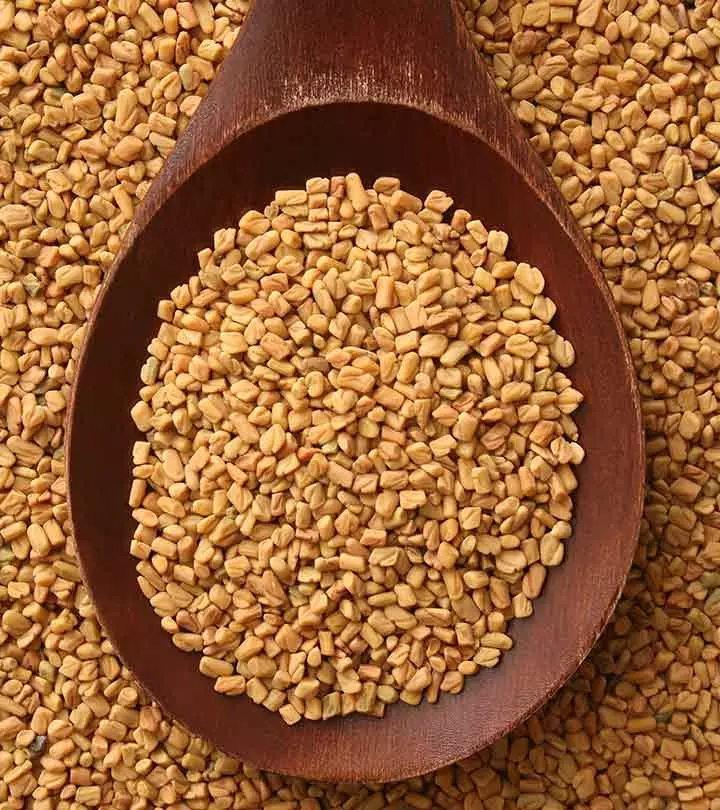
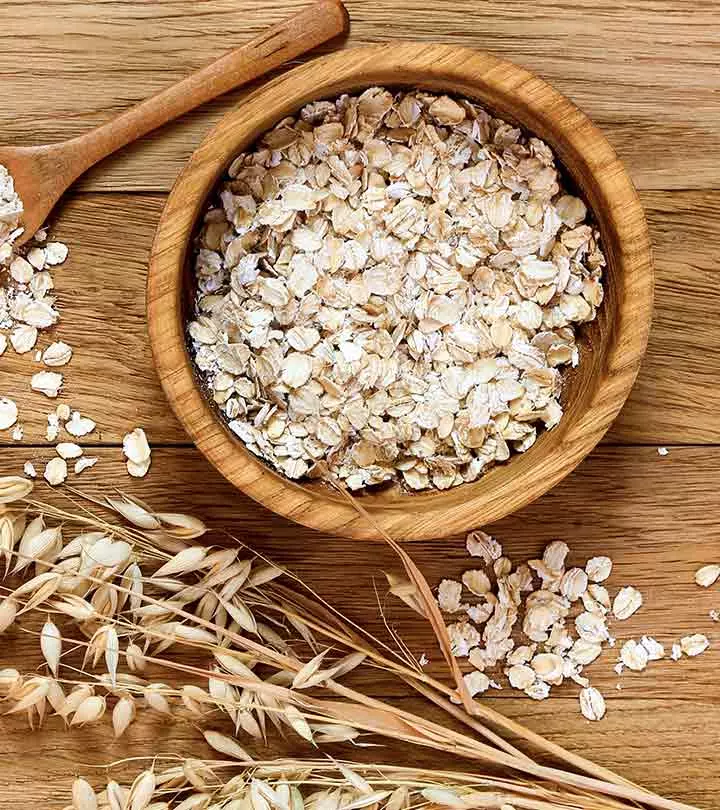
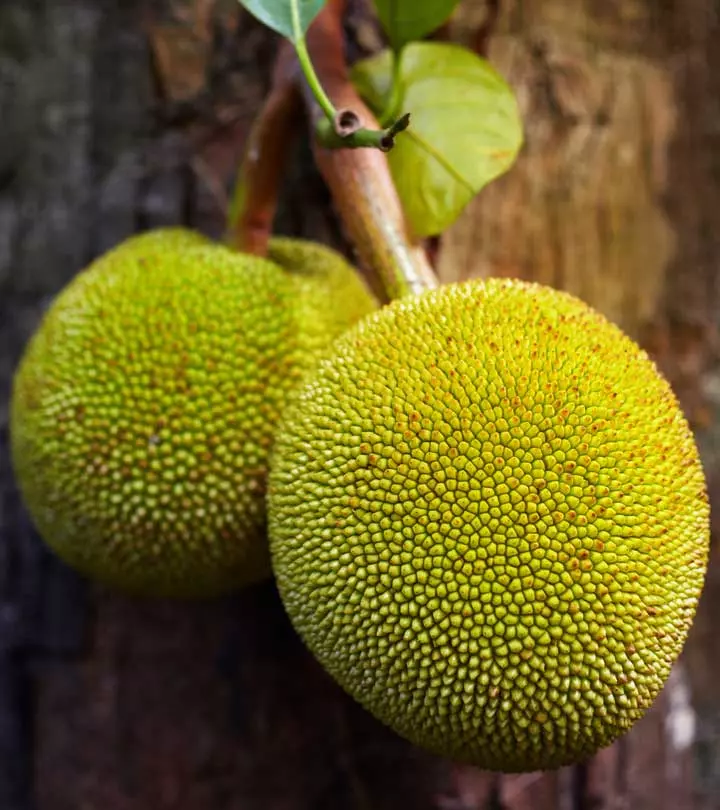

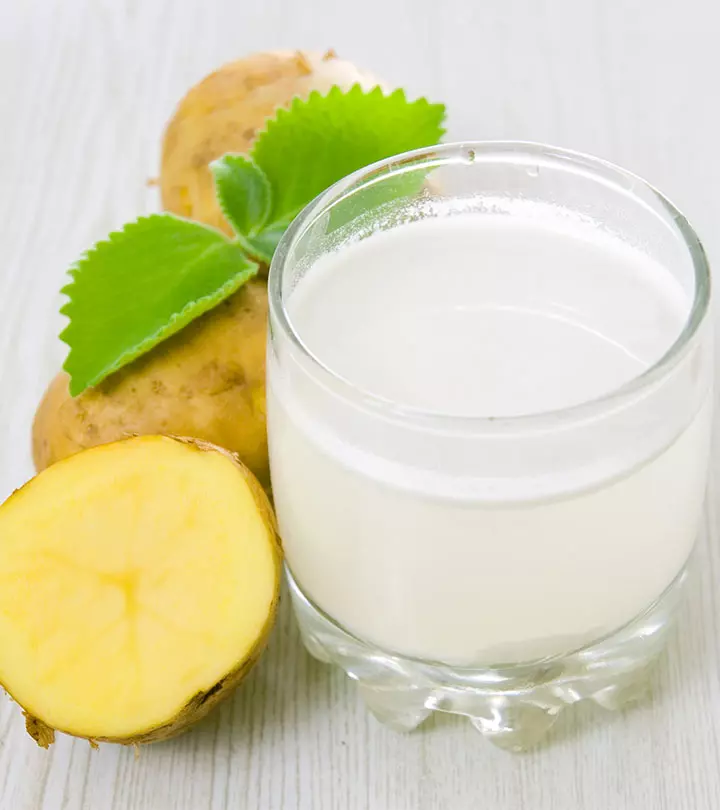

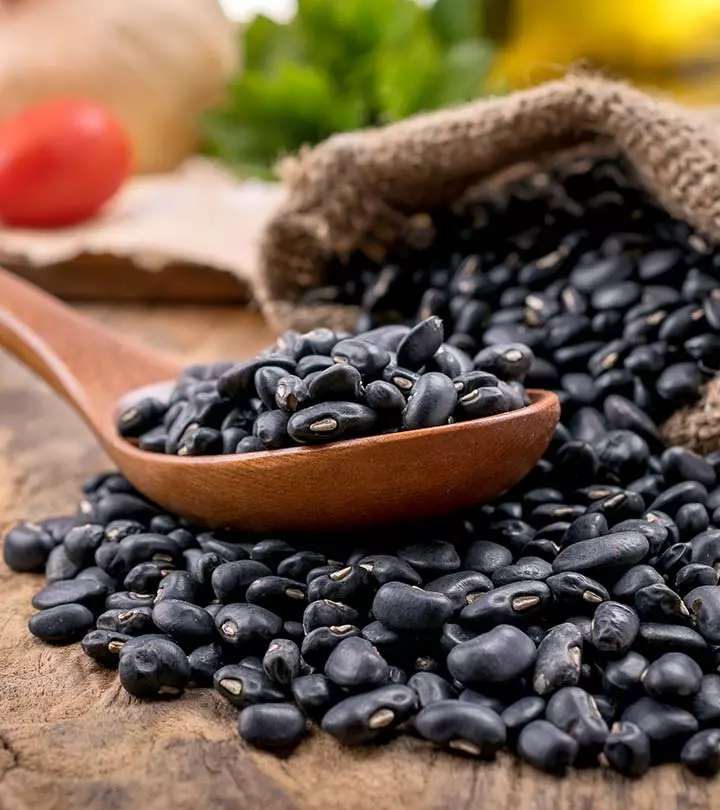
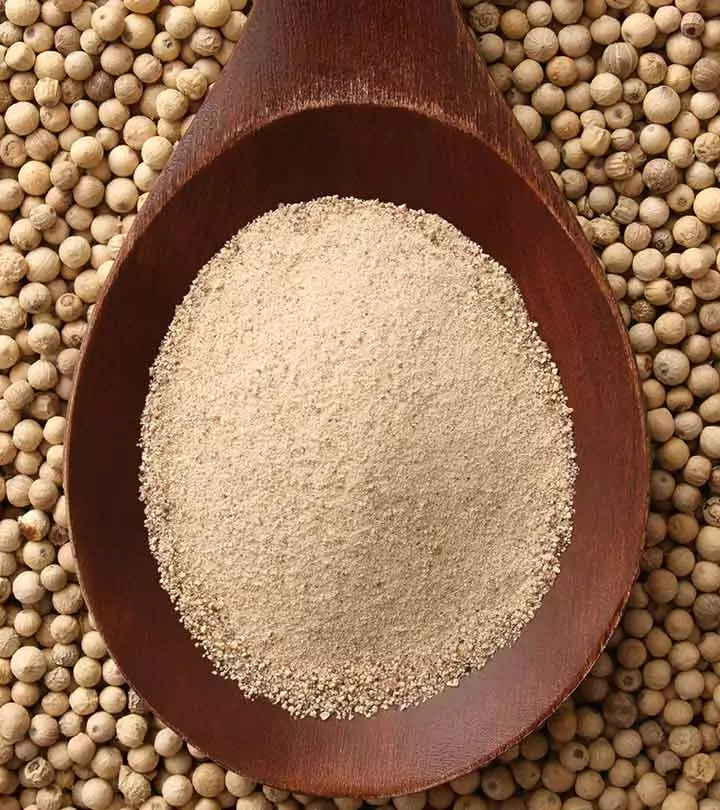
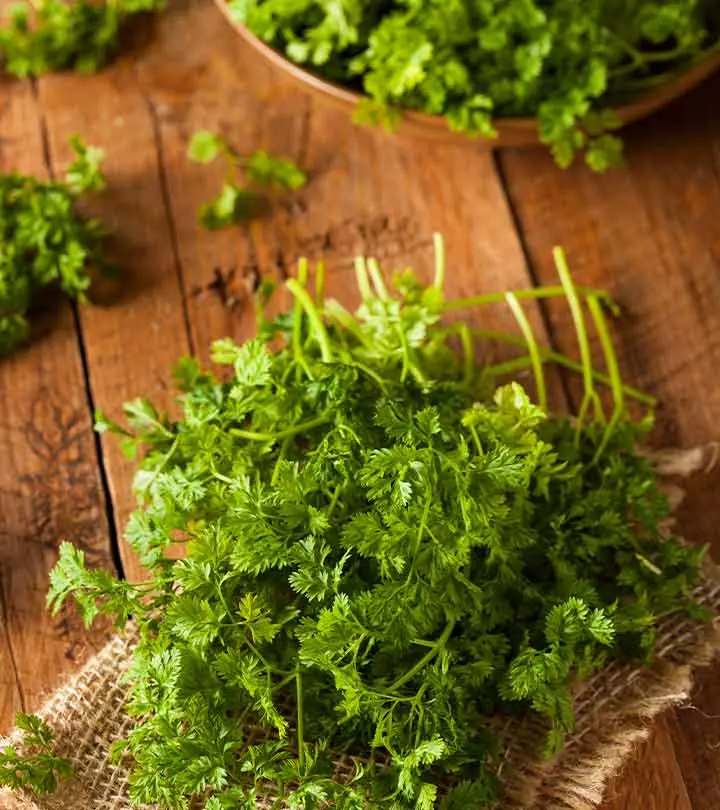
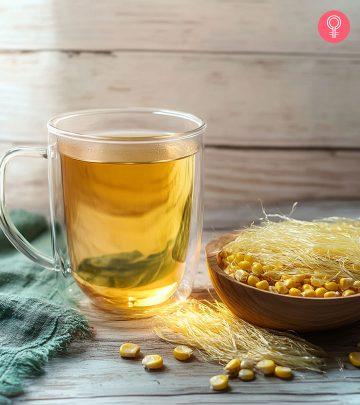

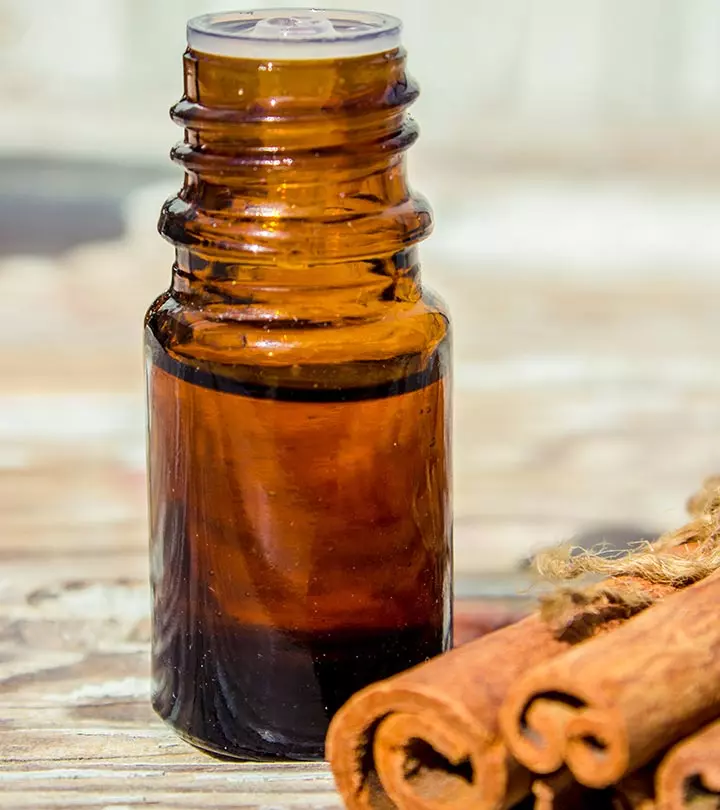

Community Experiences
Join the conversation and become a part of our empowering community! Share your stories, experiences, and insights to connect with other beauty, lifestyle, and health enthusiasts.